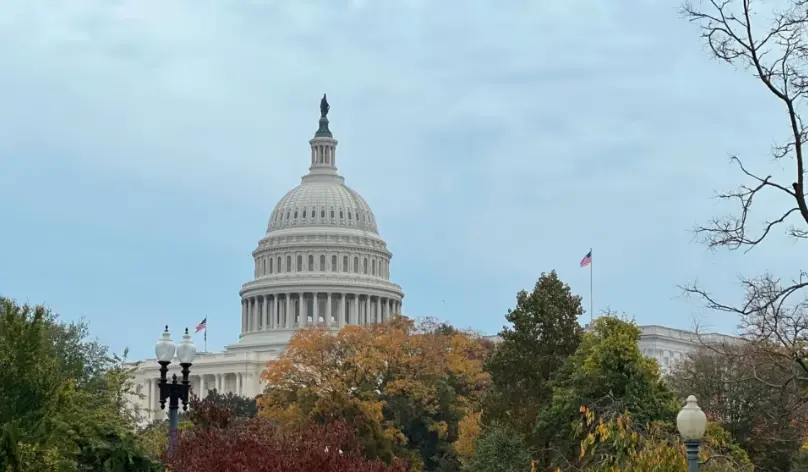Once again a possible government shutdown looms over the United States. If Republicans and Democrats fail to agree in the Senate, it could happen as early as next Friday.
The U.S. government is once again facing an imminent partial shutdown, which could occur at midnight Friday if lawmakers and the White House cannot agree on a new spending plan.
The latest funding dispute centers on the politically divided House of Representatives, where Republicans hold a narrow majority but are divided among themselves on spending priorities.
A faction of far-right conservatives has demanded spending cuts that have been rejected by everything from more moderate Republican lawmakers, the virtually unanimous group of House Democrats, along with the Democratic-controlled Senate to Democratic President Joe Biden.
A similar dispute developed in late September, but then-Speaker Kevin McCarthy, the Republican House majority leader, pushed through legislation with Democratic support to fully fund government operations through Friday. But that near-cessation of operations so infuriated eight ultraconservatives that they rebelled against McCarthy and, with unanimous Democratic support, ousted the California lawmaker from his chairmanship, a first in U.S. history.
After three weeks of debate over a replacement, House Republicans chose a little-known lawmaker, Rep. Mike Johnson of the southern state of Louisiana, as McCarthy’s replacement. Now, with no previous experience in high-stakes legislative negotiations, Johnson faces the task of cobbling together a deal to keep the government fully functioning.
However Johnson may have to rely on at least some Democratic votes to push through funding legislation, the same tactic that led to McCarthy’s downfall.
Over the weekend, Johnson offered his spending plan, a staggered approach that extends funding for some government agencies through mid-January and for others through early February. His plans ignore calls from conservatives for deep budget cuts for some government programs and tighter immigration controls on the southwest U.S. border with Mexico.
Johnson’s spending plan also fails to address Biden’s call for new financial support for Ukraine and Israel amid their respective wars against Russia and Hamas militants.
Without new funding by midnight Friday, government operations that are considered nonessential would stop, such as camping in national parks, advising taxpayers and some scientific research.
It was not immediately clear whether Johnson’s two-tiered spending plan has a chance of passing, but some conservatives called for its rejection because it extends funding at current levels, while other lawmakers expressed doubts about extending it for different agencies on two different dates.
In recent days, credit rating agencies have downgraded the government’s score due to continued uncertainty, a move that could lead to higher borrowing costs for the United States, where the national debt now approaches $34 billion.
A House committee will consider Johnson’s proposal on Monday night and several votes are likely to take place on the House and Senate floor later in the week leading up to Friday’s funding deadline.

